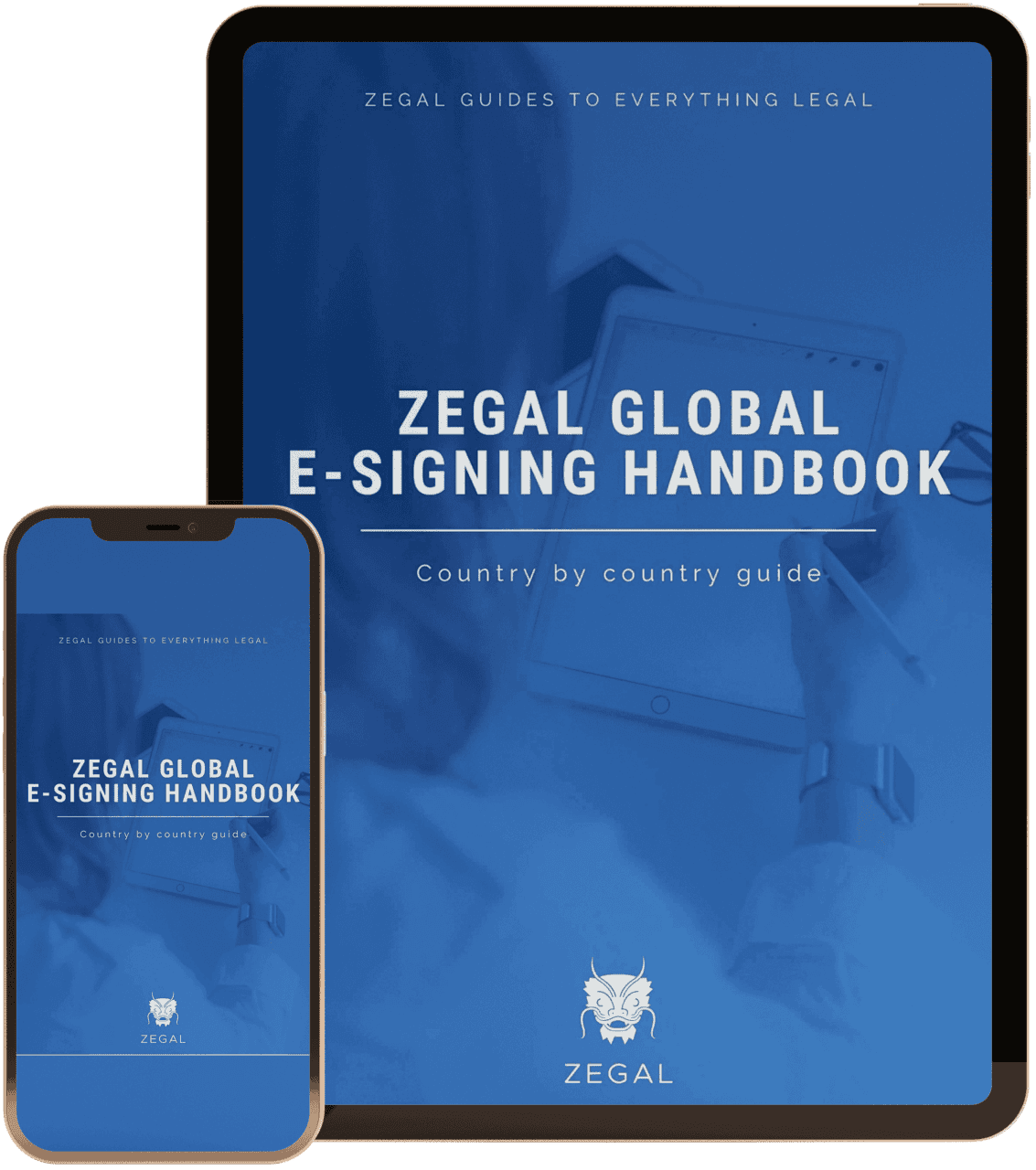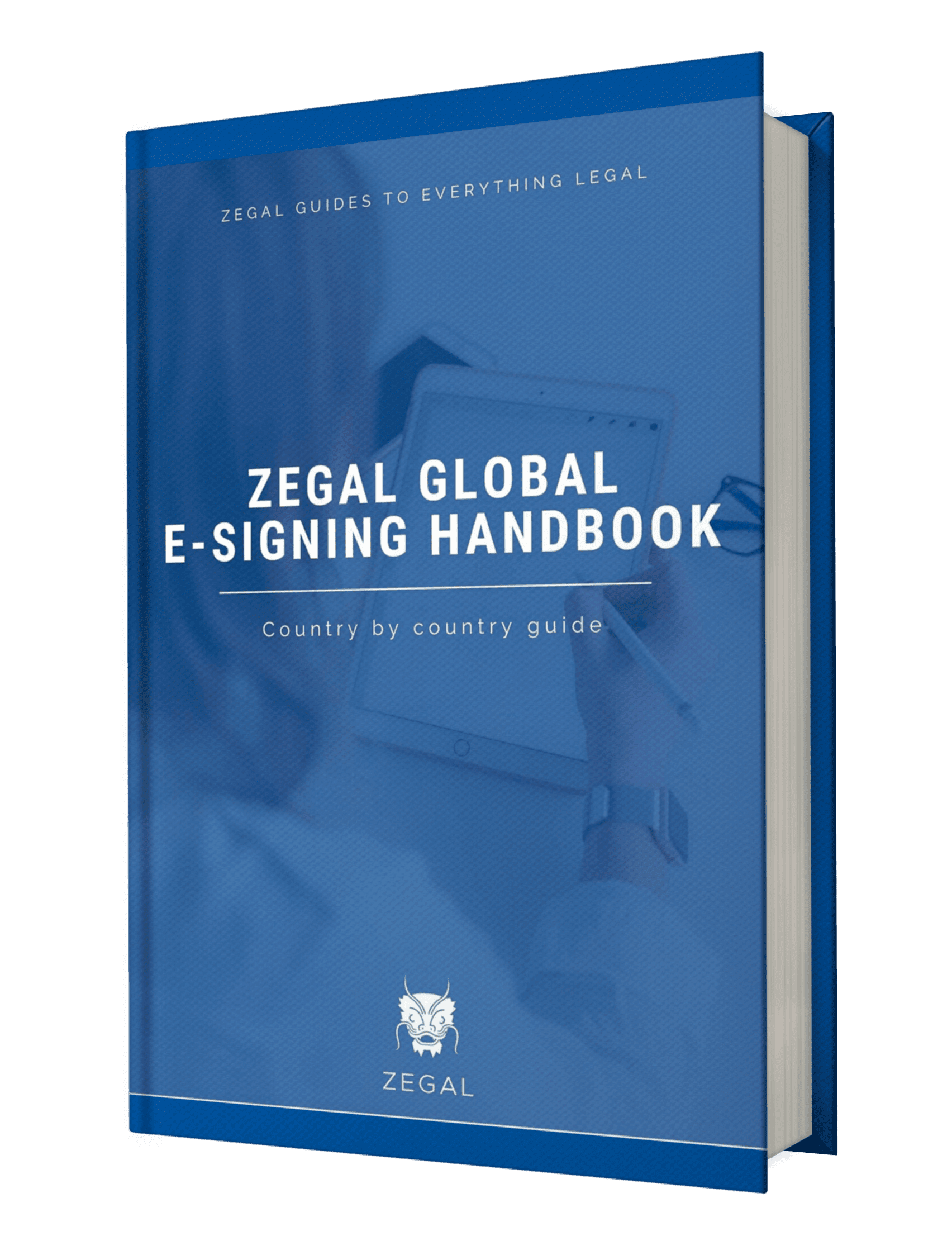Zegal Global E-signing Handbook
An electronic signature, or e-signature, is a simple, legally binding way to indicate consent or approval on digital documents, contracts, agreements, or forms.

Whats Inside?
A Nugget of Historical Context
Benefits of Using E-signature
- Managing paper can be a tiresome task. Add to it the possibility of documents being damaged, lost, or forged —these nuisances can be avoided using e-signatures.
How does E-signing work?
- There are many software providers including Zegal that provide digital and e-signature software. These services empower businesses to send documents for e-signature with a few clicks.
Different types of E-signature
- Digital signature
- Advanced Electronic Signature (AES)
- Qualified Electronic Signature (QES)
Legality of E-signature
- Many countries have passed their own electronic transactions acts. For instance, many countries like Singapore, treat e-signatures and e-documents the same as paper records and ink signatures.
E-signature legislation around the world
- Every country has specific rules on electronic signatures and how to demonstrate proof of signing in a law court. Refer to our country by country e-signing rules guides below for country-specific information.







